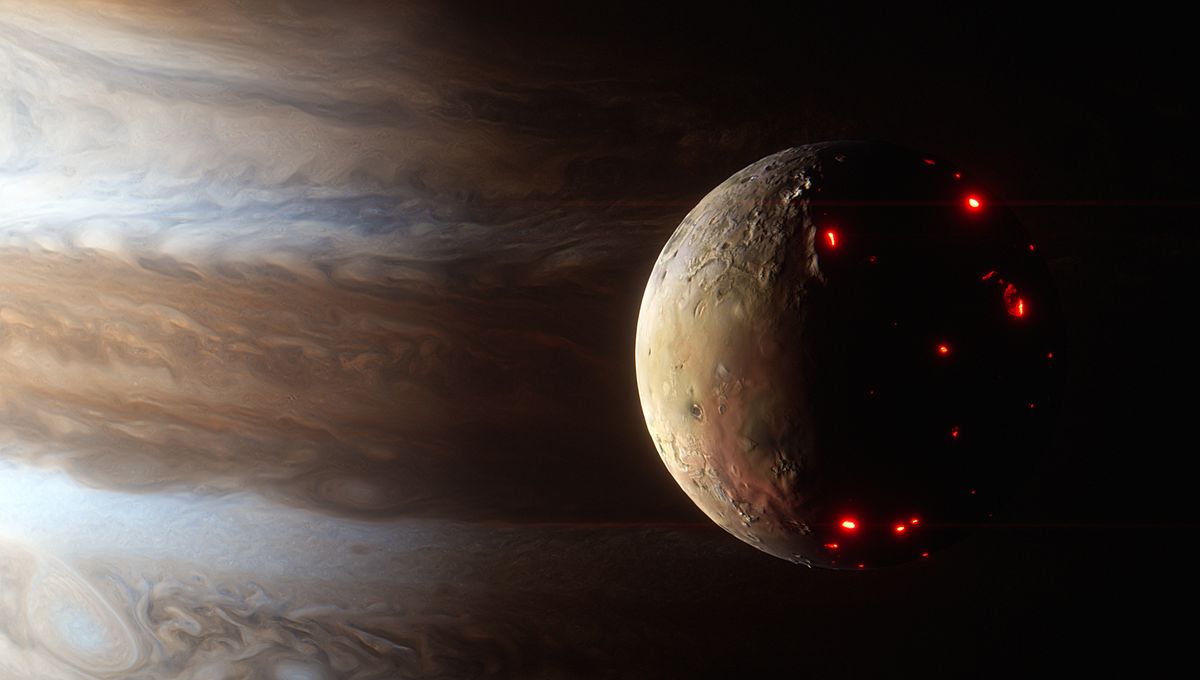
Are you ready to take a journey across the Solar System? PBS is ready to take us into the weird and wonderful worlds of our celestial neighborhood – and we are not exaggerating when we say weird. Did you know that one of Saturn’s moons is shaped like a raviolo (or your favorite type of dumpling)? Or that Uranus’ Miranda has a cliff that is up to 20 kilometers (12.4 miles) high?
The new five-part BBC/PBS series, Solar System, presented by Professor Brian Cox, takes a new look at the major planets, but also embraces the fact that the Solar System is not just made up of the Sun and the eight planets: it is a neighborhood of moons, dwarf planets, asteroids, and comets. The series showcases the peculiar and extreme environment found among them, using the latest data and observations from the tens of spacecraft and telescopes in orbit and across interplanetary space.
“We’re only really just beginning to understand and tease apart all the complex sort of dynamics in the Solar System and it’s thanks to all these amazing missions out there,” Gideon Bradshaw, series producer, told IFLScience when we sat down with him and fellow producer Alice Jones.
It’s impressive how the show has included very recent research published just a few months ago, like the observation of Jupiter’s moon Io and its volcanism by NASA’s Juno, which has been wonderfully rendered in the program. Even more impressive is how they rendered the surface of Venus by focusing on another recent discovery.
It’s an egg shape with a ring and two moons around it and it just seems completely bizarre and it spins… well I shouldn’t… I don’t want to tell you all the secrets! You gotta watch the show.
Producer Alice Jones
Venus is covered in a thick blanket of clouds. The only images from the surface come from Soviet missions from decades ago. Everything we know about its surface is also from decades ago, when radar observations provided a map of this world. Researchers noticed an enormous number of volcanos on Venus, around 85,000 to be exact. The question was: are any of them active?
Series producer Alice Jones told us that as they worked with researchers, they were told some exciting research might soon be coming out about Venus. In 2023, Professor Robert Herrick of the University of Alaska, Fairbanks, and JPL’s Dr Scott Hensley found evidence of active volcanism.
“[Herrick] spotted that there was this particular area that over a time period had showed change, which looked like a big lava lake. They examined it and found the first evidence for active volcanism on Venus,” Jones said.
“Since actually making the program I think more data has revealed more volcanoes are active and it wouldn’t be surprising if, beneath that thick cloud layer, there’s a really active dynamic world there.”
There is so much to discover in the show and we tried to ask the producers if there was a particular world or story that was close to their hearts.
Haumea “is just the most bizarre object in the Solar System,” Bradshaw said.
“It’s an egg shape with a ring and two moons around it and it just seems completely bizarre and it spins… well I shouldn’t… I don’t want to tell you all the secrets! You gotta watch the show,” Jones told IFLScience.
Catch the series every Wednesday, from October 2 to October 30, at 9pm ET/8C on PBS/NOVA. UK viewers can tune in on BBC Two starting October 7 at 9pm BST. Available on other broadcasters worldwide this October.
Source Link: “Much More Active And Much More Alive”: New Series Reveals Our Solar System’s Extreme Worlds